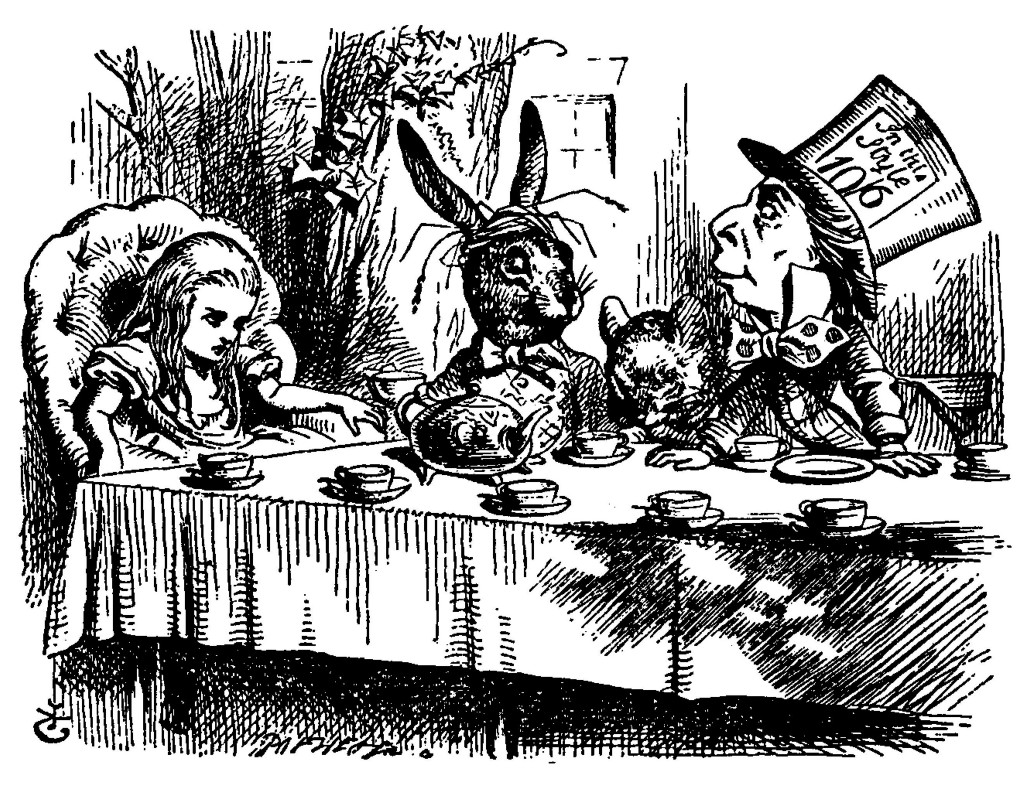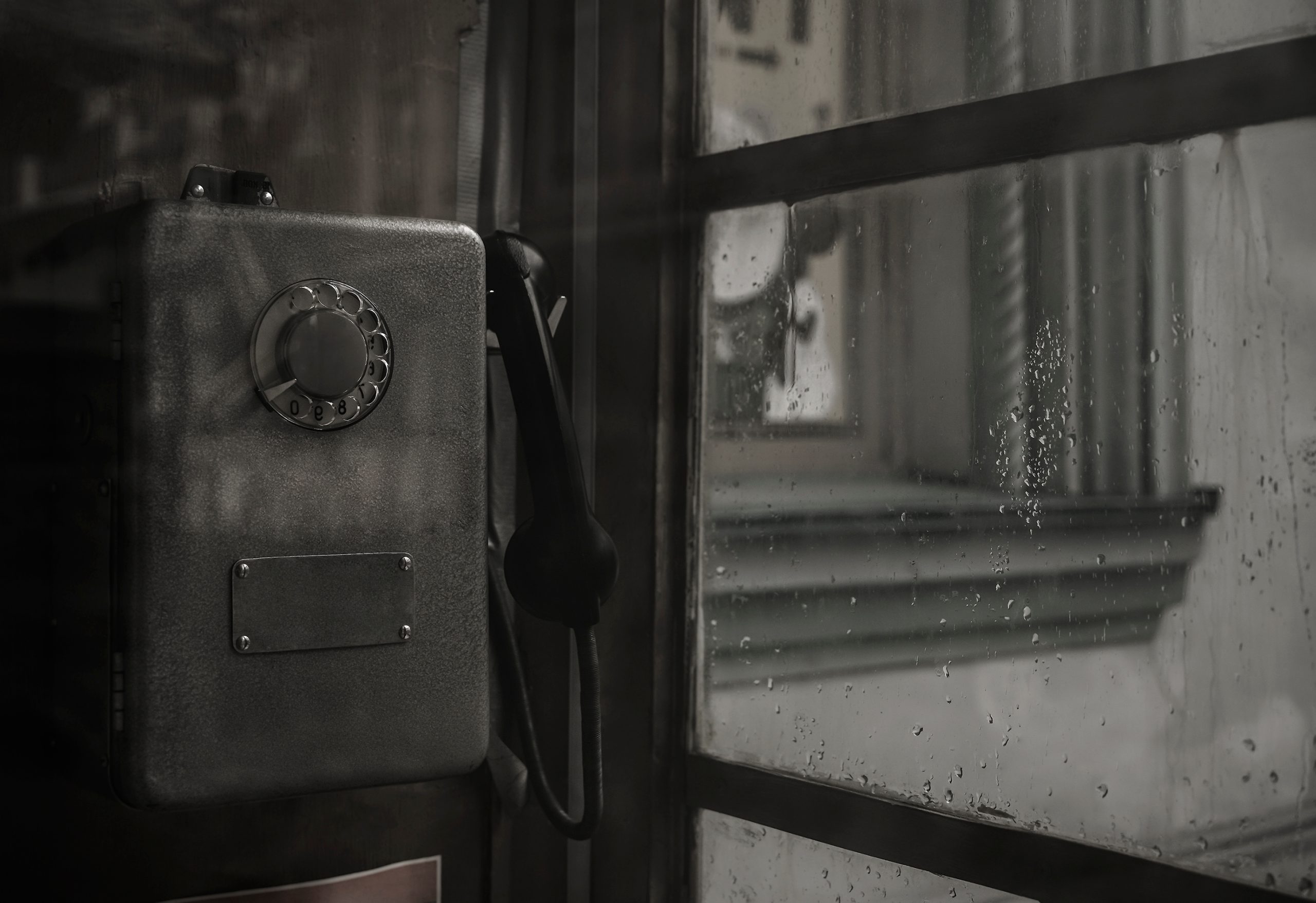Books & Culture
“Faust” Was the Original Viral Content, and It’s Still Relevant Today
How a 400-year-old story keeps reinventing itself to reflect what we most want, and what we most fear

I f the legend of Faust — the old man who sells his soul to the devil himself in exchange for youth, power, and glory — originated with the Germans in the 16th Century, it’s been perfected by the Americans in the 21st Century. Not the actual Americans (though there’s an argument to be made for that), but The Americans. When the FX series debuted in January, 2013, just ten days after Barack Obama was sworn in for his second term, its showrunners couldn’t have predicted how relevant the story of two Soviet spies embedded in the D.C. metro area in the 1980s would be by the time The Americans wrapped on May 30, 2018. In the wake of Donald Trump, travel bans, border walls, and Russia probes, a series finale that ended with KGB operatives Philip and Elizabeth Jennings sacrificing everything for the deal they made with their country felt uncomfortably resonant.
Despite the FBI’s pursuit, the Jenningses make it back to Moscow. But after 20 years in the United States, they’re now in a Soviet Union that is completely foreign, and one that they sense has an uncertain political future. Philip’s best (and only) friend, the Bureau agent leading their pursuit, will have hell to pay for letting the family escape, both personally and professionally. The cost for eluding capture also means that Philip and Elizabeth are forced to to abandon their son and are in turn abandoned by their daughter along the way.

The Faustian exchange is manifold and multilayered in The Americans: Philip and Elizabeth give up their futures of certainty in a country that, while mired in Soviet sameness, also sold its citizens on a sense of security. The decades they spent building their lives in the U.S. meant decades of decisions — from having kids to buying a Camaro — that would all come in second (at best) to whatever needed to be sacrificed for the USSR. And, in the end, it all gets sacrificed, including much of the faith they had in their government when their exposure is wrapped up in a plot by their own handler to discredit Soviet leader Mikhail Gorbachev. They bargain away their sense of belonging in order to serve their country, and in the end, the devil comes to collect.
Making it back to Moscow, the Jenningses still have a ways to fall: The Americans wraps in 1987, two years before the fall of the Berlin Wall, and four years before the collapse of the USSR turned Russia into a kleptocracy. Even if their American-born children are deported to the USSR and reunited with their parents (as was the case with the children of Russian spies living in the United States in the 2010s), it’s likely that the family would be even more miserable and fractured. Hell is other people.
The U.S., as we came to realize over the six years that The Americans ran, is no better off. To add insult to injury, this revelation is due in part to a presidential election currently under investigation for potential ties to the Russian government. The lines between who is Faust and who is the Devil in that dichotomy are as skewed as a state-run newspaper.
The lines between who is Faust and who is the Devil in that dichotomy are as skewed as a state-run newspaper.
How we view history depends largely on how we frame it. Faust entered into legend in 1587 with the German chapbook, The Historia von D. Johann Fausten, published by Johann Spies and presumably based on the real-life alchemist Johann Georg Faust. Faust conjures Mephistopheles in the woods and makes him an offer: his soul in exchange for 24 years of absolute power and knowledge. With the devil at his side (and, improbably, a poodle), Faust rubs elbows with sultans, popes, and Helen of Troy. Two dozen years later, Mephistopheles demands payment in full. The morning after the final day of the bargain, Faust’s innards are discovered scattered around his bedroom — the rest of his body is found in his courtyard.
The Spies chapbook traveled with the velocity of a Tomahawk missile, resonating with audiences for both its fantastic episodes and gory end. Scholar Gerald Strauss describes the pamphlet as “the very paradigm of a late medieval… user-friendly article, attractively packaged, designed to grab and hold attention, and capable of leaving some sort of enduring mark on the mind of the targeted reader.” In other words, it was the 16th-century equivalent of BuzzFeed clickbait, presented as a dichotomy of virtue versus damnation with clear heroes and villains. It’s the cautionary tale of what happens when we eradicate our deepest fears and satisfy our highest goals.
Faust was the 16th-century equivalent of BuzzFeed clickbait, presented as a dichotomy of virtue versus damnation with clear heroes and villains.
It didn’t take long for English translations to take hold, including Christopher Marlowe’s dramatization, Doctor Faustus, which premiered in 1592. In Puritan New England, its popularity was comparable to the Bible, the occasional hymnal, and a few schoolbooks. Even as the “Sinners in the Hands of an Angry God” aesthetic of the 17th and early 18th Centuries faded away, Faust (much like history) repeated itself.
Goethe became the grandmaster of the legend between 1806 and 1831, when Parts I and II of his Faust were published. Instead of being a black-and-white story of one man’s willing descent into damnation, however, Goethe painted his version with shades of 19th-century grey. His Faust bemoans in Part I, “Two souls are locked in conflict in my heart/They fight to separate and pull apart.” This chronic dissatisfaction, rather than the specifics of his contract, becomes Faust’s downfall — as well as the downfall of Marguerite, a love interest he seduces once he regains his youth, but is incapable of fully loving. His bargain with Mephistopheles becomes a bet: He’ll serve the Dark Lord if and when he finds pure, unadulterated happiness within the totality of the human experience.
Until then, he’ll take a particularly Romantic reward: “a frenzied round of agonizing joy,/Of loving hate, of stimulating discontent,” and “The whole experience of humankind,/To seek its heights, its depths.” There could hardly be a more 19th-century request.
Goethe’s Faust is one of the first to become relatable rather than revilable. In him, we can see our own desires and dissatisfaction, as opposed to a cautionary tale that reminds us to suppress those same desires. Indeed, after being originated by Spies, cemented by Marlowe, and given new life by Goethe, Faust has continually been reinvented as a metaphor for whatever we desire and fear most. The nature of the bargain, and the actual deliverables, are details to be dictated by the times. In the 16th century, Faust bartered mortality for knowledge; in the 19th, he made a gentleman’s wager to achieve Romantic transcendence.
Across the 20th century, Faust continued to flourish as a tabula rasa for many of humanity’s greatest atrocities, the desire being godlike glory. Mikhail Bulgakov’s The Master and Margarita placed the devil in Stalinist Moscow, where he exposed the USSR’s culture of greed, excess, and sycophancy. Thomas Mann’s Doctor Faustus chronicled the story of a composer who barters with Mephistopheles in the shadow of Hitler’s Germany, unaware of the ramifications of this deal until there’s no escape (in its 1948 review, the New York Times didn’t miss the opportunity to call out Mann’s home country for having “sold its soul to the Nazi demon for transitory worldly glory”).
Across the 20th century, Faust continued to flourish as a tabula rasa for many of humanity’s greatest atrocities.
Historical figures themselves started to become implicated in the meme, even to the point of backlash. J. Robert Oppenheimer, the father of the atomic bomb, was so associated with the trope that, writing for Dissent magazine in 1956, Günther Anders declared Faust dead. “Since we are in a position to inflict absolute destruction on each other,” he argued, “we have apocalyptic powers. It is we who are the infinite.” Faust’s fatal flaw, Anders argued, was the “inability to transcend his finitude” — something we as a society with the power of nuclear destruction can even begin to understand.
But have we really transcended?
On a Saturday night in Berlin just before Halloween, I exit the U-Bahn at the Deutsche Oper station, just before a performance of Berlioz’s La damnation de Faust. This means passing a large slab of a monument by Alfred Hrdlicka, titled Der Tod des Demonstranten (“The Death of the Demonstrator”). Hrdlicka depicts a man suspended upside down by two police officers in full riot gear. The demonstrator, his back turned towards the viewer, is held by the legs, his wrists pinned together, his back bared. He looks vaguely Christlike, or like an Icarus who has flown too close to the sun and is now being dragged back down towards his doom. It’s an apt visual to encounter before seeing Berlioz’s date with the devil.
But Benno Ohnesorg, the subject of the memorial who was killed outside of the Deutsche Oper in 1967, isn’t another Faustian avatar, rather he represents the price of power. At just 26, the classics student was attending his first demonstration, opposing the Shah of Iran’s visit to Berlin and the German government’s welcoming of an authoritarian leader with a heinous human rights record. Iranian agents and German police began to attack the peaceful demonstrators, and in the chaos that ensued, Sergeant Karl-Heinz Kurras shot Ohnesorg in the back of the head. He died en route to the hospital, leaving behind a wife who was pregnant with their first child.
Sergeant Kurras was exonerated officially, but damned by left-wing student groups. These events contributed to the radicalization of the Red Army Faction, which terrorized West Germany throughout the 1970s. Adding insult to injury, in 2009 Kurras was revealed to have been a Stasi operative for East Germany.
Looking now at The Death of the Demonstrator, I’m reminded of why Alexandra Richie dubbed Berlin “Faust’s metropolis.” It’s a city that’s both terrible and wonderful, a city that has both created and destroyed, and “above all, a place where history could not and still cannot be hidden away.” Even in plain sight, history has a knack for repeating itself. The Deutsche Oper’s Damnation de Faust presents the story in a Weimar-esque black-and-white staging, hinting at Thomas Mann and the price of transitory worldly glory.
But that’s what we need most in 2019: In an era of American politics in which the rhetoric and actions of the current administration are being compared to Nazi Germany by Holocaust survivors and scholars alike, the Dante-like idea of Hell being circular takes on new meaning. The more fully we pursue the peak of our desires, the more reason Mephistopheles has to circle back and collect. Most striking about the Ohnesorg memorial, seeing it again just a few months after national debates in the US surrounded the fate of so many Confederate memorials, is that it calls upon us to remember the true cost of power is chaos.
In the United States, we hide this damage behind our own monuments to Faust, because we’re not ready to acknowledge the bargains we’ve cut over the years in the name of hubris. We’re not ready to settle those debts. We’re still stymied by our finitude. Here, in Faust’s metropolis, history is unable to hide behind metaphor.
The more we spin metaphor, the more likely we are to overcomplicate it, which can be either to our advantage or to our detriment. The more Faust continues to repeat itself, the harder it becomes to discern the doctor from the devil — much like a copy of a copy, the lines become blurred. We’ve gone around this loop too many times for it to still be a straightforward cycle of deals made and honored (come hell or high water). We’ve surpassed the Puritanical, black-and-white binary of good and evil. The more we spin metaphor, the more likely it is that a kink will be introduced into the system, turning that straightforward circle into a Möbius strip. If a character goes in as Faust, he comes out the other side as the Devil himself. There’s no longer a clear beginning or end, no distinction between terror and wonder. Our Faust retellings in 2019 have spun into finer shades of grey. The days of simply wanting a “frenzied round of agonizing joy” were simpler times.
The more Faust continues to repeat itself, the harder it becomes to discern the doctor from the devil.
Even in the era that The Americans takes place, we were beginning to realize the contours of this grey area. Playwright-dissident Václav Havel began toying with the idea of adapting Faust for his era. During his second round of incarceration between 1979 and 1983, he began working on what would become Temptation.
Prison served as the crucible for Havel’s interpretation, which transitioned from a straightforward resetting to a metaphor for imprisonment — and, by extension as he wrote to his wife Olga, “a metaphor of the general human condition (the state of ‘thrownness’ into the world; the existential significance of the past, of recollection, and of the future, the spinning of hopes; the theme of isolation and pseudohope, the discovery of ‘naked values,’ etc.).”
In Havel’s reworking of Faustian metaphor in the shadow of Stalinism, morality became one vast grey area. His avatar for Mephistopheles professes to be “only a catalyst” who helps humans tap into their own innate potential for good or evil. “Do you know why you called me a devil?” he demands of Havel’s Faust. “In order to shift your own responsibility.” Later on, he tells Faust, “It would be enough if you mobilized, in the name of a good cause, at least one thousandth of the cunning that your director mobilizes from morning till night in the name of a bad one.”
Havel exposes the underlying fallacy of the original Faust: Evil is subjective, so to align with a perceived evil is simply aligning with a perception. It may, in fact, be the morally right thing to do. Given that this was written during a prison stint for subversion, however, there’s still no happy ending for Havel’s Faust, evil or not; in the end, he comes to realize that he sold himself for enlightenment and knowledge, but only received a thinly-veiled self-deception in exchange.
Still, the blurred vision between “good” and “bad” set the stage for our own takes on the legend between the end of the USSR to today. Also working in the theatrical vein, Randy Newman’s musical adaptation of the work made swift use of the songwriter’s acerbic flair for lyrical editorial, even when it came to God. “In all my life, I don’t believe I’ve ever heard such bullshit,” sings Lucifer in the opening number (evocative of mega-church gospel services). “Even from you,” he adds to God, “a master of bullshit.” God (sung on the concept album by James Taylor to Newman’s own Lucifer), to return to Havel, “behaves too much like a person.” Newman’s Gen-X slacker version of Faust — who, incidentally, is only in this for the girls and the entourage — doesn’t stand a chance in this divine pissing contest.
Which only serves to reaffirm that we aren’t done with our open market on Faust. Consider even the past few weeks, which have seen further revelations of privacy being sold for as little as $20 a week to Facebook, our lust for knowledge sated by WikiLeaks (which in turn only aided our current state of political dysfunction), the hubris of this week’s State of the Union, or the fact that Roger Stone’s single-minded lust for attention may lead to a prison sentence — but one that will guarantee him even more attention. (Stone has a tattoo of Nixon on his back, I have a tattoo from Gounod’s Faust on mine: We all have our own priorities for what remains indelible.)
Even if we do come to know the whole experience of humankind, successfully seeking out its heights, we also have to contend with its depths. This means coming to learn that we’re all poor devils. It means acknowledging that our actions have consequences, whether we have the supernatural behind us or not. Either we persist in our willful disregard of these points, or we keep making these deals on a “buy now, pay later” mentality, up to the point where we lose sight of what it is we’re actually selling ourselves for. Faust has yet to die, because in the end, history has robbed us of our capacity for the infinite, and we’ve yet to reconcile our finitude. Faust, meanwhile, will stick around until we do.
That’s our end of the deal.








